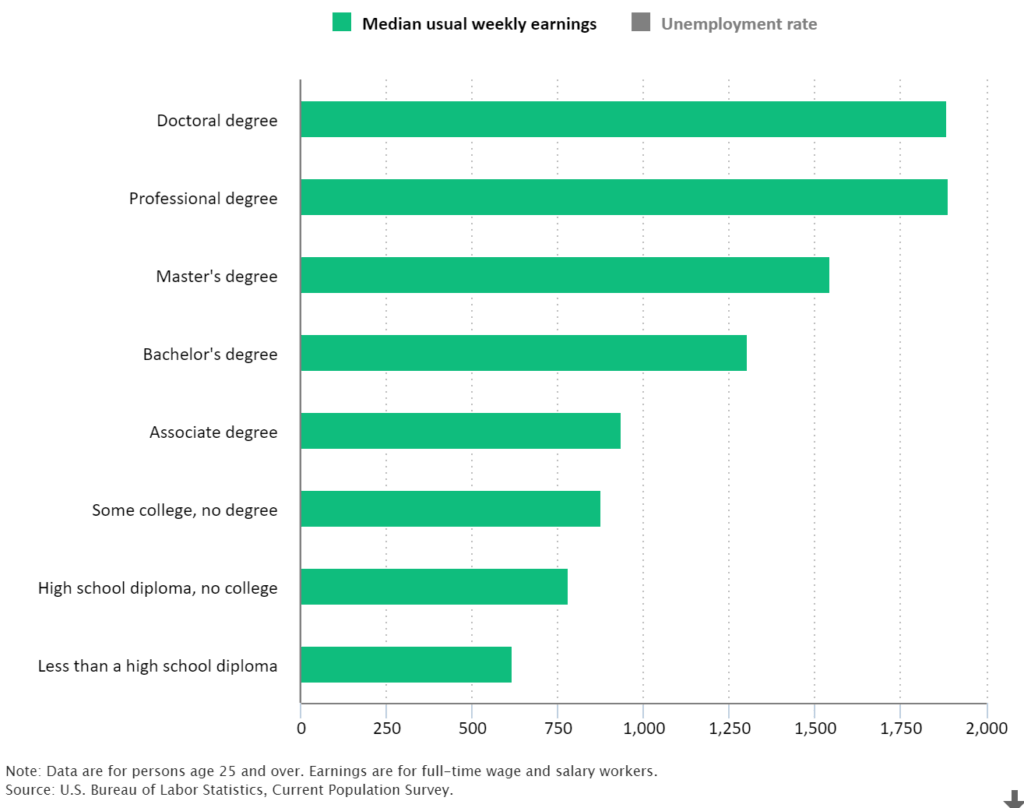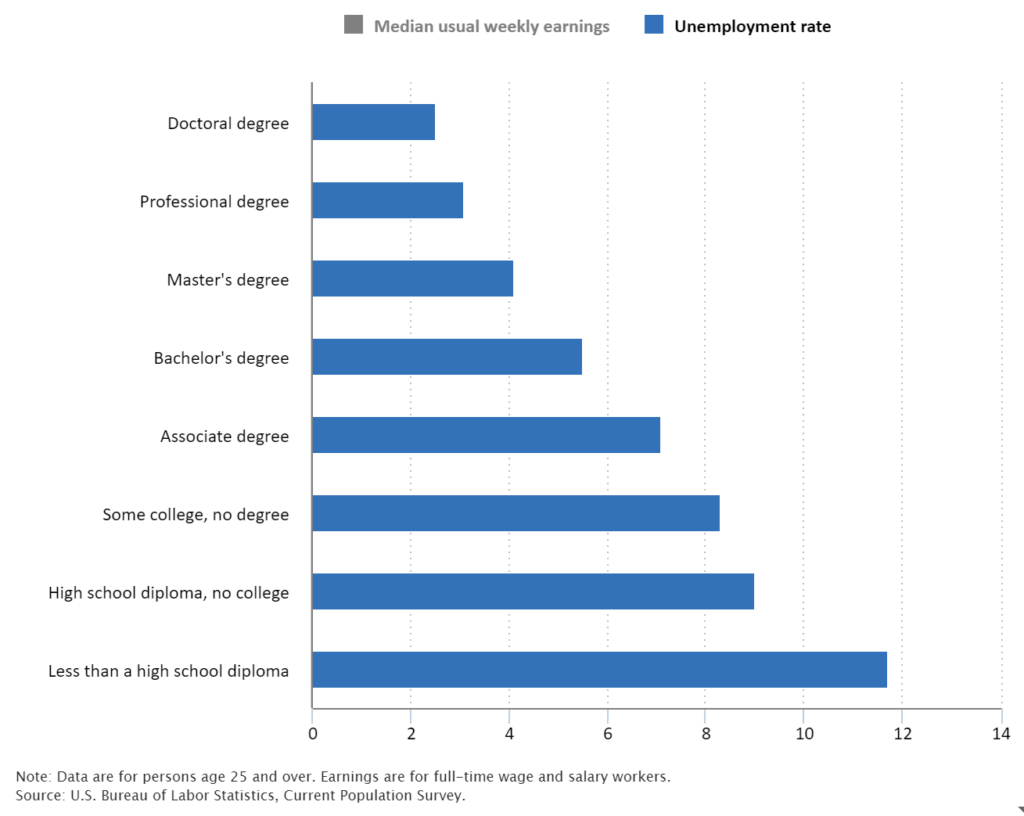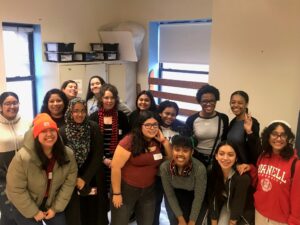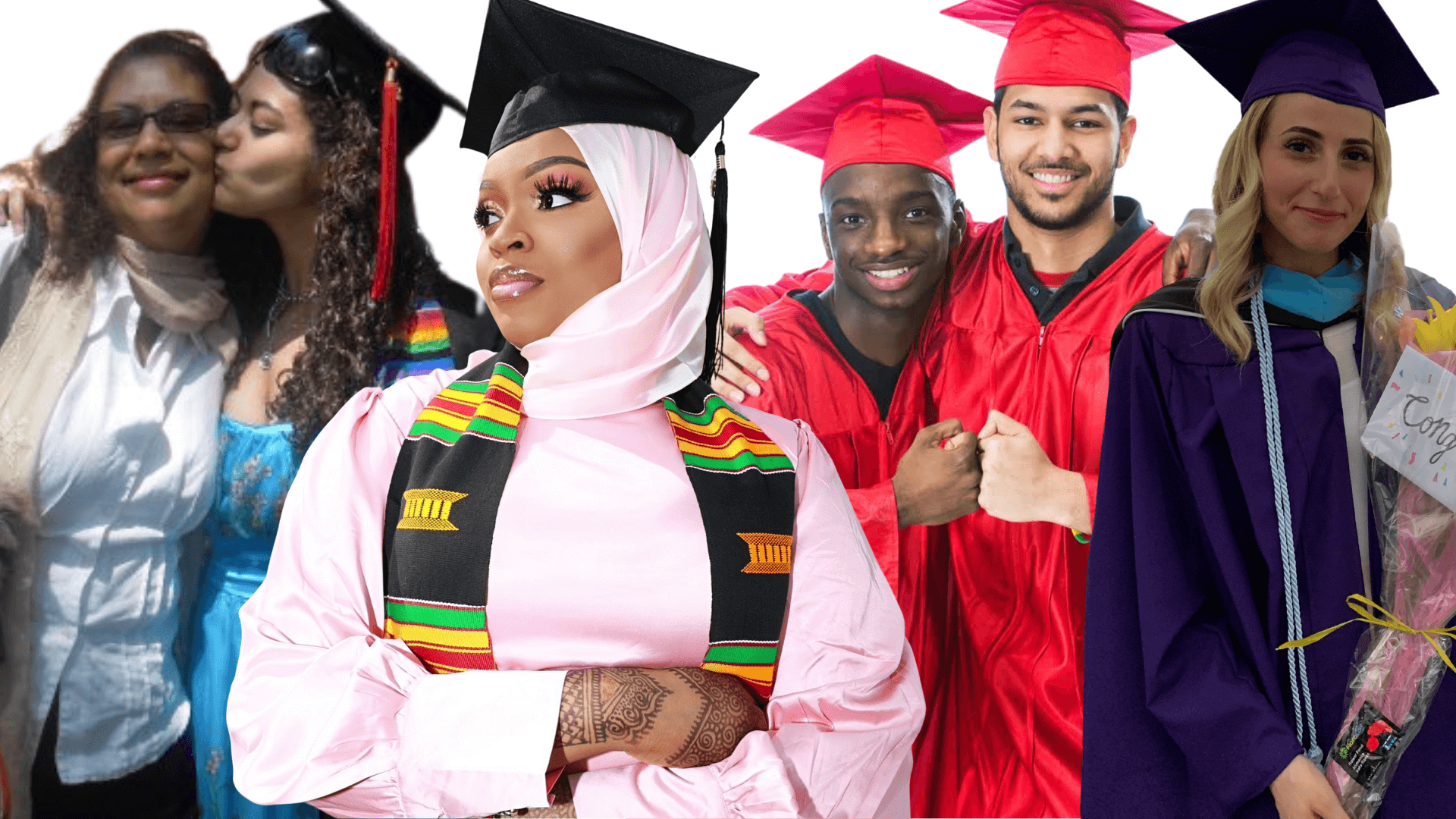Student Leadership Network continues to expand access to higher education for all students, particularly those from underserved communities. Our work centers around the notion that every young person regardless of economic status, race or community, should have the opportunity to gain a college education and reach their individual goals and dreams.
The challenges around college access disproportionately affect students in underfunded schools. Unfortunately, there continue to be political, economic, and social barriers to college access that directly impacts the representation of Black, Indigenous, and people of color (BIPOC) in higher education.
In this post, we’ll dig into why college access and success matter and how SL Network has been leading the work of building equity in education for 25 years! Jon Roure, our Executive Vice President & Chief Innovation Officer, helps us better understand the college access landscape, the challenges, and potential solutions.

What Are the Barriers to College Access?
“I know first-hand the incredible power education has to transform whole families and lift their trajectories,” says Jon. “My family had humble beginnings; when my parents left Puerto Rico for the tri-state area, they struggled to make ends meet at times. They valued education but didn’t have the opportunity to go to college themselves.”
This is a common challenge facing BIPOC families around the country. Although education is valued, it’s a struggle to realize the dream of higher education because of socioeconomic barriers. Jon explains how this continues to play out in the area where he grew up: “The two towns where we grew up in New Jersey still struggle with lead indicators for college access like Free Application for Student Aid (FAFSA) completion. They also lag in key outcomes like college enrollment for students of color with similar socioeconomic backgrounds.”
Public schools like the one Jon and his siblings attended often don’t have the resources to give students the tools they need to succeed academically, leading to low test scores and low college enrollment numbers. Students need and deserve one-on-one attention, and counselors need to be able to dedicate time to the tasks that best support students through the college application process. Even today, as the ASCA recommends a 250-to-1 ratio of students to school counselors, the national average is actually 424-to-1 for the 2019–2020 school year. At Student Leadership Network, our ratio is 83- to -1.
For some, the application process alone is intimidating, let alone the other equally important components on the path to college. Unfortunately, when it comes to completing the FAFSA, one of the most highly correlated indicators for college enrollment, millions of students across the country who are eligible for federal financial aid fail to receive it; leaving millions of dollars in financial aid on the table.
There are many barriers to FAFSA completion. These can include a student and their family’s lack of access to information, the stigma of taking on student loan debt, and the sheer complexity and abundance of paperwork required by the federal government, state, and institutions that require families to prove their need.
Without the proper resources and support to guide students – particularly those who are the first in their family to go to college – the road to college can be difficult to navigate. Until all students have access to the knowledge, support, and a sense of belonging at institutions of higher learning, we will continue to see a “degree divide” in this country.
Why Does College Access Matter to Our Society?
Expanding college access is integral to creating a more equitable society. Yet, in recent years there has been a shift in how higher education is perceived. For those with the privilege of choice, the decision to go to college has become less and less appealing. Skyrocketing tuition costs and the position of some political leaders that higher education may have a negative effect on society, factor into dwindling college applications.
However, we believe access to higher education could ease our nation’s social and economic divide. Though rising college costs and student debt are legitimate concerns, a college degree remains a good return on investment for those who earn them. As recent data from the U.S. Bureau of Labor Statistics shows, the more you learn, the more you earn. For example, workers with a bachelor’s degree had median weekly earnings of $1,305 in 2020 compared with $781 for those with a high school diploma.

Undeniably, higher education plays a vital role in our society today. It teaches us more than just what we find in our books, often instilling in students a sense of connection and social responsibility. Moreover, people with a college degree not only tend to earn more but are also far less likely to be unemployed. While the COVID-19 pandemic broadly caused a higher unemployment rate, the unemployment rate for those with bachelor’s degrees was 5.5%, compared with 9% for those whose highest level of education was a high school diploma.

A college education is not just about economic advantages though. People with college degrees are shown to be more satisfied with their jobs and physically and mentally healthier than those without a college education. Because higher education is associated with a healthier lifestyle, it could, in turn, reduce health care costs. College graduates are also more likely to spend quality time with their children, teaching the next generation valuable lessons early.
Education remains one of the most powerful tools we have to create equity in a capitalist society. Education can, in simple terms, create cycles of prosperity for so many struggling Americans.
At SL Network, we work with students from diverse underserved communities that wouldn’t typically have the opportunity to explore higher education options. Jon comes from such humble beginnings and is a shining example of how higher education can change lives. “My two older sisters were my unofficial college advisors. I was fortunate that I had them to blaze a path and guide me every step of the way. Between the three of us, we now have 7 degrees – a Ph.D., a JD, two master’s, and three bachelor’s degrees. Yet, my parents taught me social responsibility – that it’s not just about individual success. It’s just as important to give back to your community and help others succeed. Every day, at SL Network, we demonstrate what’s possible when students from marginalized communities gain access to quality education and seize opportunities.”
Our Approach to College Access and Success
It’s important to consider that there are real disparities in our educational system; not all students have access to the same information, opportunities, and other social capital. Part of SL Network’s mission is to make sure our students have the chance to reach their full potential by providing them with opportunities to explore higher education early on in their school journey. At the start of our time together, many of the students we work with can’t even imagine their future because they’ve never had access to the right resources.
Our approach is layered and focused on expanding student access to higher education. Allocating people, expertise, and resources in the right places with the right process can have a significant impact on closing achievement gaps. We provide what students need by working with them every step of the way, starting in sixth grade, including experiential opportunities like college trips and fairs, and support in high school with filling out applications, finding scholarships, and applying for financial aid.
Programs like CollegeBound Initiative (CBI) are fully integrated within each school community we partner with. We work closely with school leadership, counselors, and teachers, to ensure that all students have the resources necessary to develop their post-secondary plans. CBI’s personalized approach directs students to well-matched postsecondary institutions with high degree attainment rates by underrepresented students, generous financial aid, and other supports that bolster college enrollment, college persistence, and college completion.
 Once our students are accepted and enroll in college, we continue to support them to succeed there. Because they are often first-generation college students, they might be unfamiliar with many of the processes and protocols of higher education – from what a bursar does to optimizing the student-advisor relationship. Initiatives like our Bridge Through College program leverage near-peer leaders to successfully support students through key college persistence milestones. Additionally, our Alumni Engagement team offers diverse programs (in-person and/or virtual through varied channels) to further engage young alumni – and their families – and provide them with information and resources that address key barriers to college success. Ultimately, if you empower students to live to their fullest potential, provide role models, and create positive peer pressure – there’s no limit to what they can achieve.
Once our students are accepted and enroll in college, we continue to support them to succeed there. Because they are often first-generation college students, they might be unfamiliar with many of the processes and protocols of higher education – from what a bursar does to optimizing the student-advisor relationship. Initiatives like our Bridge Through College program leverage near-peer leaders to successfully support students through key college persistence milestones. Additionally, our Alumni Engagement team offers diverse programs (in-person and/or virtual through varied channels) to further engage young alumni – and their families – and provide them with information and resources that address key barriers to college success. Ultimately, if you empower students to live to their fullest potential, provide role models, and create positive peer pressure – there’s no limit to what they can achieve.
Over the past 25 years, SL Network has supported over 46,000 students nationwide. Our students do not question if they will go to college, but where they will go to college. As we look forward to the next 25 years we hope to expand college access to hundreds of thousands more students so they too can claim their place, and succeed, at colleges and universities across the country.
You might also like…

Closing the racial gap in higher education
Hear from CEO Yolonda Marshall on how the path to higher education for first-generation college students and those growing up in underserved communities is often rife with uncertainty and barriers. These hurdles disproportionately affect students in underfunded public school systems, many of whom are Black, Indigenous, and people of color (BIPOC).

